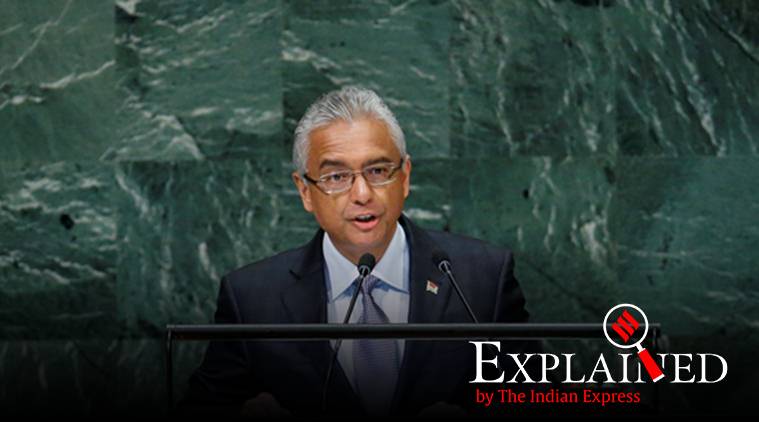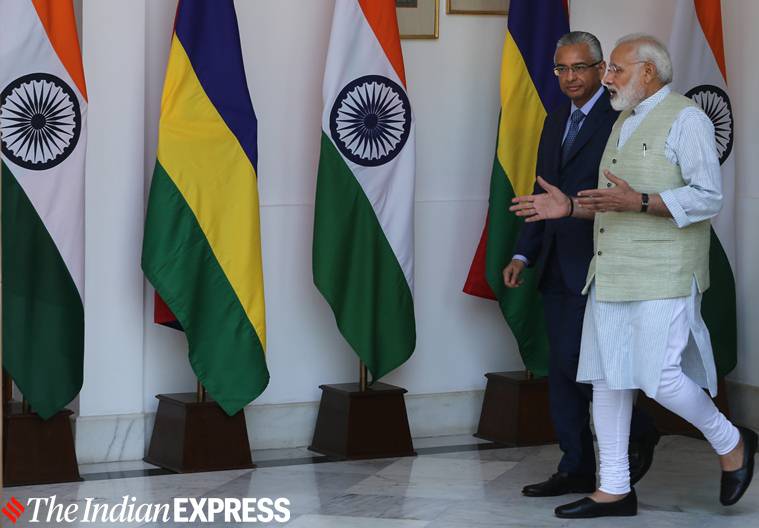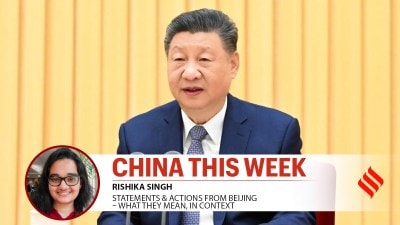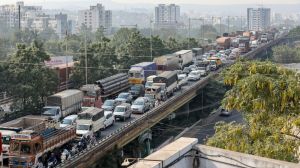Explained: How Mauritius re-elected Prime Minister Pravind Jugnauth
Jugnauth, the current prime minister, assumed the country’s leadership from his father, Sir Anerood Jugnauth, who resigned from the post in 2017.
 Mauritius Prime Minister Pravind Kumar Jugnauth. (File/Reuters)
Mauritius Prime Minister Pravind Kumar Jugnauth. (File/Reuters)
On Friday, Mauritius re-elected incumbent Prime Minister Pravind Kumar Jugnauth, with his Militant Socialist Movement (MSM) winning more than half the seats in the country’s parliament.
In a tweet, Prime Minister Narendra Modi Saturday congratulated Jugnauth on his electoral victory. “Congratulations on your electoral victory. We have worked closely together to strengthen fraternal relations and development partnership between India and Mauritius. I look forward to speaking with you soon and to continuing our engagement,” he said.
Congratulations @PKJugnauth on your electoral victory.
We have worked closely together to strengthen fraternal relations and development partnership between India and Mauritius.
I look forward to speaking with you soon and to continuing our engagement. @MauritiusPM pic.twitter.com/0bpW3hWKnF
— Narendra Modi (@narendramodi) November 9, 2019
Located in the Indian Ocean, Mauritius is one of Africa’s most stable and prosperous nation and is the biggest channel of FDI inflows into India.
More than 75 per cent of the island nation’s 13 lakh population is of Indian origin, with many descending from indentured labourers brought here during British colonial rule to work on sugar plantations.
The 2019 elections
Mauritius politics has three major parties: Mauritius Labour Party (MLP), Militant Socialist Movement (MSM) and the Mauritian Militant Movement (MMM). The first two derive their support from the prominent Hindi-speaking Hindu community. The MMM is known to be favoured by other groups, such as the Muslims, Creoles, and non-Hindi speaking Hindus such as Tamils and Telugus.
The country’s National Assembly has 62 elected members, with an additional eight members appointed to ensure minority representation.
Jugnauth, the current prime minister, assumed the country’s leadership from his father, Sir Anerood Jugnauth, who resigned from the post in 2017. The senior Jugnauth led the country six times between 1982 and 2017.
The 2019 elections were seen as an affirmation of Pravind Jugnauth’s government, who took over from his father without a popular vote and was accused of nepotism. His campaign message of fairer wealth distribution appears to have struck a chord with voters, with the MSM party sweeping 35 of the 62 seats in the National Assembly, and the rival Labour Party finishing second at 15 seats.
Pravind Jugnauth and India
 Prime Minister Narendra Modi with his Mauritius counterpart Pravind Kumar Jugnauth in 2017. (File/Express photo: Renuka Puri)
Prime Minister Narendra Modi with his Mauritius counterpart Pravind Kumar Jugnauth in 2017. (File/Express photo: Renuka Puri)
Since becoming prime minister, Jugnauth has visited India thrice- once in 2017 and twice in 2019. The 2017 visit to India was his first after assuming office.
In his first 2019 visit, Jugnauth was the chief guest and keynote speaker at the 15th Pravasi Bharatiya Divas, where he spoke about organising a Bhojpuri Utsav and a Bhagwad Gita festival. He met Prime Minister Narendra Modi on the sidelines of the event, where the two leaders spoke about ways to boost bilateral trade, investment and expand cooperation in blue economy sectors. Jugnauth also visited Prayagraj where he took part in the Kumbh Mela, before proceeding to Mumbai, where he met industry leaders.
Jugnauth’s second 2019 visit came in June when he was invited for the swearing-in of Modi’s second term.
- 01
- 02
- 03
- 04
- 05






































